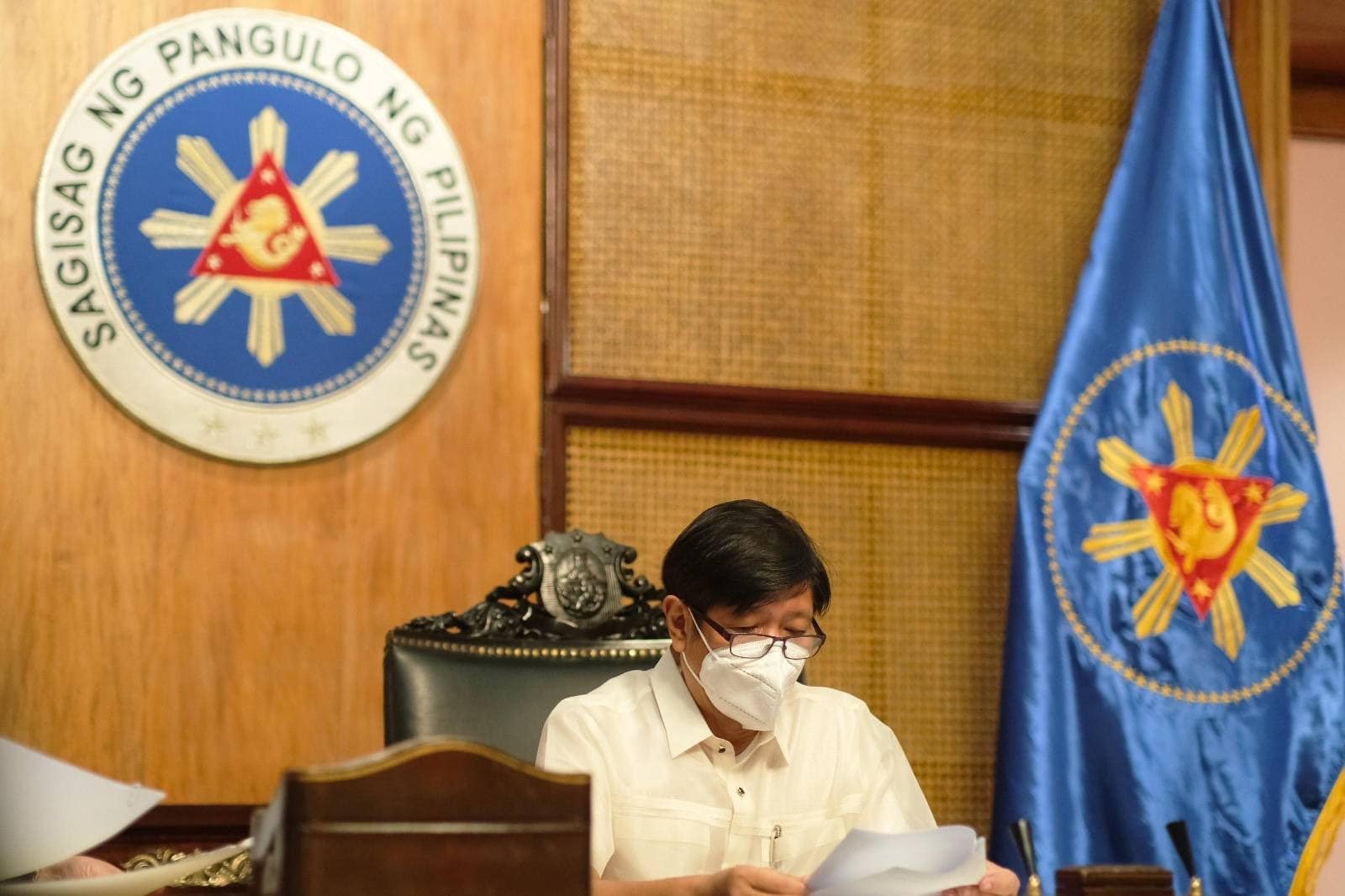President Ferdinand “Bongbong” Marcos Jr. on Saturday renewed his call for the immediate passage of the mandatory Reserve Officers’ Training Corps (ROTC) program in schools, believing that it would help train the youth for disaster response in light of the magnitude 7 earthquake that recently rocked Abra and other northern Luzon provinces.
Marcos added that the ROTC would help bolster the country’s capability in dealing with disasters.
In his latest vlog, Marcos said he realized the importance of “disaster-proof” planning of communities after he personally visited and witnessed the situation in the quake-hit provinces.
“We can prepare civilians for disaster response through the ROTC program. In the program, students would not only be taught about national defense but also disaster preparedness and capacity building for risk-related situations,” he explained.
In his first State of the Nation Address (SoNA), Marcos pushed for the reimplementation of the ROTC program in schools, this time for senior high school students instead of the collegiate level.
“The aim is to motivate, train, organize and mobilize the students for national defense preparedness, including disaster preparedness and capacity building for risk-related situations,” he said.
The Chief Executive wanted to make ROTC a mandatory program for senior high school students in all public and private schools nationwide.
Marcos stressed the need to train the youth for disasters as the Philippines is located along the “typhoon belt in the Pacific” and situated in the “Right of Fire,” where volcanic eruptions and earthquakes often transpire.
“We are also at high risk for the effects of climate change. We are prone to disasters that’s why we should not be lacking in preparedness,” he said.
He emphasized that Filipinos must always be prepared in times of emergency, considering the location of the Philippines, making it highly vulnerable to disasters and other extreme weather disturbances fueled by climate change.
He lamented how the powerful quake caused damage to hundreds of houses, buildings, and cultural and heritage sites, including in his home province, Ilocos Norte.
Several cultural and heritage sites in Abra and Ilocos Sur incurred severe damage from the tremor, including centuries-old churches such as the Tayum Church and Sta. Catalina de Alexandria Church, the Vigan Cathedral, the Bantay Bell Tower, and the iconic Calle Crisologo in Vigan.
“They were destroyed and need to be restored immediately. That’s why we must have disaster-proof planning in all the structures that we will build, including roads, buildings, heritage sites, schools, hospitals and residential houses,” he said.
Even former president Rodrigo Duterte, Marcos’ predecessor, has asked Congress to enact a law that would revive the mandatory ROTC, believing that it would “instill patriotism” among the youth.
The proposed law reviving the program for senior high school students, however, remains pending before the House of Representatives until today.
The ROTC was made optional and voluntary when Republic Act no. 9163 or the National Service Training Program (NSTP) Act of 2001 was signed into law by then president Gloria Macapagal-Arroyo in 2002.
Through this law, college students have been allowed to select which program they would like to take between ROTC, Literacy Training Service, and Civil Welfare Training Service for their NSTP.
Its enactment was made in response to public clamor for reforms in the ROTC program following the death of Mark Chua, a student of the University of Santo Tomas, who was killed by his own fellow cadet officers in the ROTC in 2001.
His death is believed to be connected to his expose of the alleged corruption in the ROTC unit of his university.
